Crosslands Flower Nursery: Rooted in Family Entrepreneurship

Interview with Ben Cross, Owner, Crosslands Flower Nursery, UK
When Ben Cross began his career as a marine biologist, he never imagined he'd spend his days in a greenhouse. However, he eventually felt something that many other next-gens can identify with – the irresistible pull of an entrepreneurial legacy.
In the wake of massive unemployment during the Great Depression, Ben’s great-grandparents took full advantage of a government program to launch a farming operation. Twenty years later, in 1957, the family left the program, and Ben’s grandfather bought a farm to continue the business. The family would eventually transition from growing food crops to growing flowers.
After a decade working as a marine biologist, Ben was looking for a more meaningful path — one where he could feel connected to his roots — and decided to throw himself into the family business. Both have thrived: under Ben’s leadership, Crosslands has led a campaign to improve labelling on flowers in the UK, undertaken an initiative to promote sustainable growing and cultivated a greater sense of community among its customers.
We spoke to Ben about his transition from marine biology back to family and flowers, the challenge of competing against cheaper imports and why sustainability remains the backbone of Crosslands' operating model.
When did your family transition the company from a means of survival to a sustainable business?
In many ways, we are still very much in survival mode. For growers in the UK, this is not just a job; it is a lifestyle. I view the business almost like walking a tightrope. We are not looking very far ahead; we are only looking at the near future.
The first generation came from high unemployment during the 1930s. They were just grateful for the government initiative that got them started, which was similar to what we know today as a crowdfunding programme.
While we developed the company using a more traditional framework, my family never felt comfortable operating a business. Even today, I do not think of myself as a business person; I just grow flowers.

Ben's father, David Cross, preparing alstroemerias; image courtesy of Crosslands Flower Nursery; photo by James Greig
Ben's father, David Cross, preparing alstroemerias; image courtesy of Crosslands Flower Nursery; photo by James Greig

I do not need any extra motivation when I get up in the morning because it is in my blood.
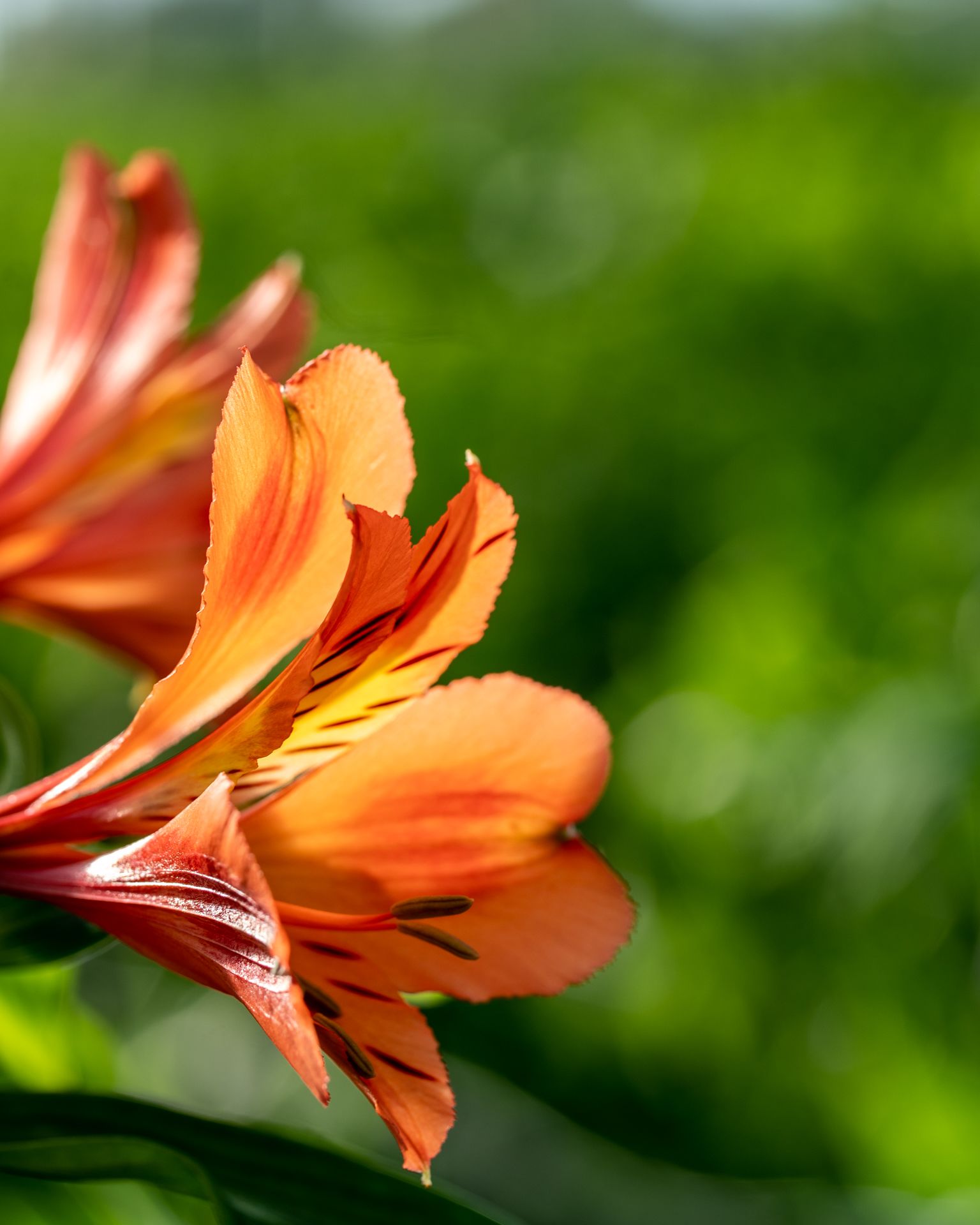
Orange queen alstroemerias; image courtesy of Crosslands Flower Nursery; photo by James Greig
Orange queen alstroemerias; image courtesy of Crosslands Flower Nursery; photo by James Greig

Do you see this historical focus on survival as a factor behind Crosslands' continued success?
Yes — without a doubt. I believe this mindset has helped us during these lockdowns, in particular. I hear a lot of bigger businesses worrying about how they are going to pivot and survive.
We have been surviving since 1936, and we have been through a lot as a family business. There are major international companies that started in the 1980s and then failed in the 2000s. We have outlasted multi-million-pound businesses.
I think the connective tissue between the generations involves creating a deep bond with nature. That is why I ultimately left marine biology to work for the family business.
I have always wanted to help the planet; however, I was only a very small part of a massive system while working in marine biology.
I would find an endangered species of bird, but someone would still build a wind farm that might kill it. I would find a rare bit of coral, but someone would still dig for oil, contributing to ocean warming and coral bleaching. I was fed up with working hard and not feeling fulfilled from my efforts.
I was also tired of seeing family businesses similar to mine going to waste because of the foreign flowers coming into the UK. A lot of businesses were failing, which motivated me to return to look after the family business.
How did your perspective on the family business change after you returned full time in 2011?
I knew it would not be easy. The period between 2011 and 2014 was a real learning curve in terms of the science of growing.
I enjoyed seeing the finer details of the family business, but it did not take long to also see the huge challenges we were facing.
More than 90 per cent of the flowers in the British marketplace are imported from countries such as Kenya, Colombia, Cambodia, South Africa and Ecuador. Their products are very cheap, and it is difficult for us to compete.
Supermarkets and wholesalers did not want our flowers anymore. At that time, they were our only two customers, and I struggled to find new ones.
I also had to adapt to the fact that I was not being paid monthly, which I’d grown accustomed to as a marine biologist. I had to grow the flowers and also go to market, as well as manage all the other aspects this entailed. It was enjoyable but also very time-consuming.
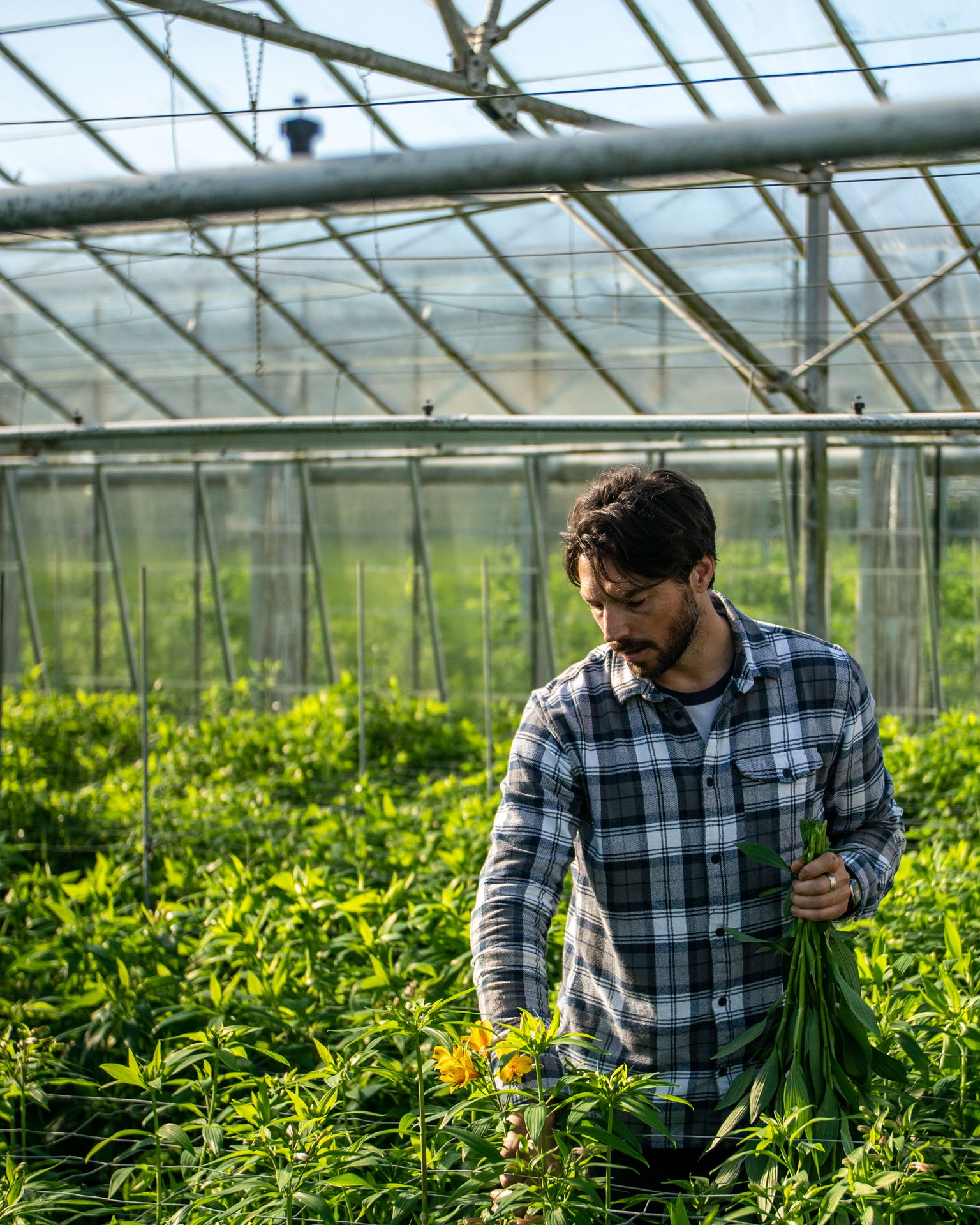
Ben at work in the greenhouse; image courtesy of Crosslands Flower Nursery; photo by James Greig
Ben at work in the greenhouse; image courtesy of Crosslands Flower Nursery; photo by James Greig
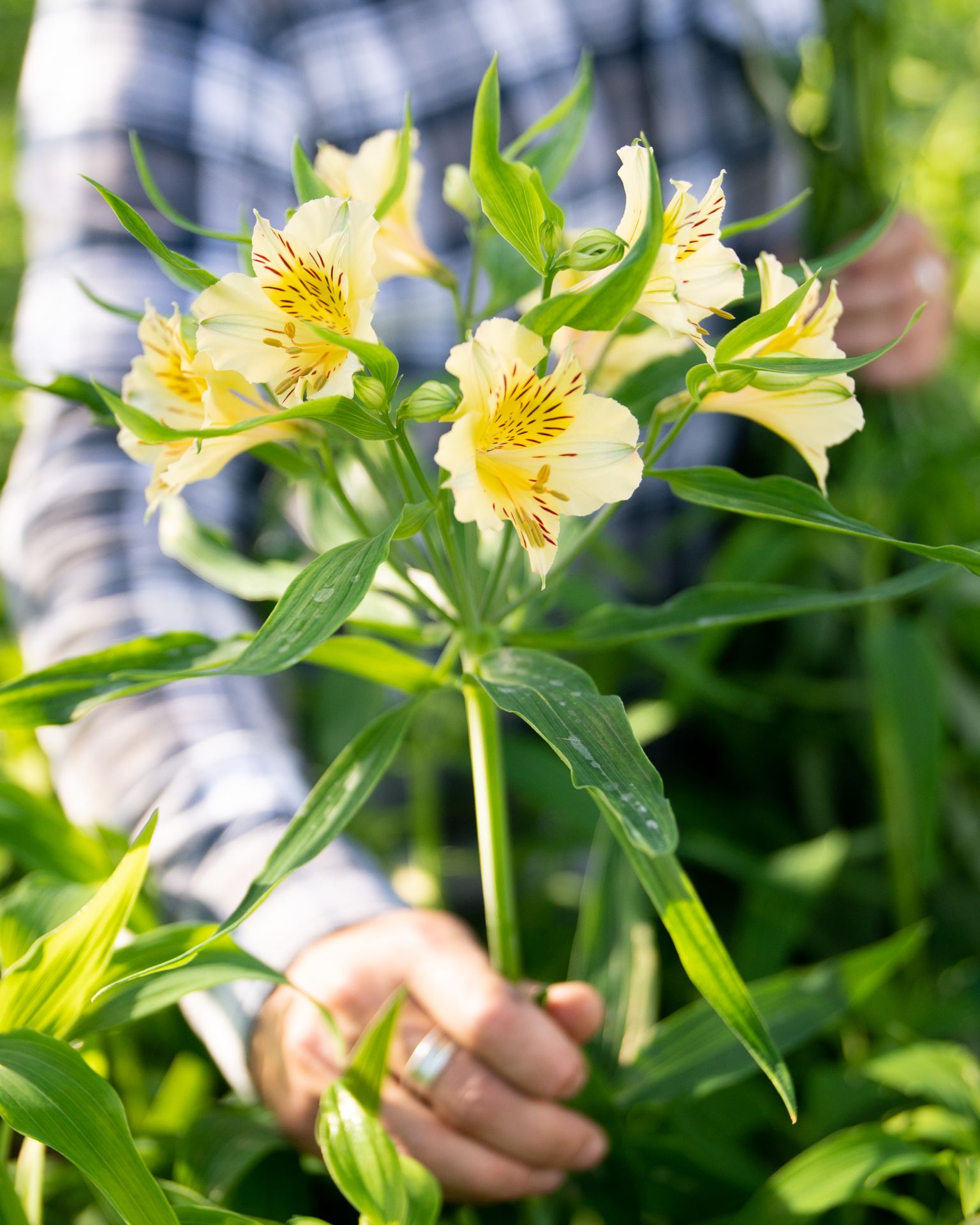
Ben showing off some alstroemerias; image courtesy of Crosslands Flower Nursery; photo by James Greig
Ben showing off some alstroemerias; image courtesy of Crosslands Flower Nursery; photo by James Greig
What was standing in the way of local UK growers establishing a firm foothold in the marketplace?
I love to cook, and I have always admired people like Jamie Oliver, who show families how to cook with local produce quite cheaply.
The food industry in the UK has come a long way, and the Jamie Olivers of this world have changed supermarket labelling. For example, the fish counter always displays a sustainable fish logo. The public is better educated about the food they buy.
However, there is no Jamie Oliver in the flower industry.
Supermarkets do not label flowers in the same way they label food. The label does not indicate where the flowers have come from, the chemicals involved in their production or information on their carbon footprint; it only says the flower name and price.
In 2014, I decided to do something about this. I gave up on trying to convince the government to help me, and I resolved to do it myself.
I developed a campaign called British Flowers Rock to educate the public about the details of their flowers. The campaign has slowly been disseminating information to the public, and it has been amazing to see it catch on. I am often asked to talk on podcasts, and I have been giving a lot of Zoom talks in greenhouses on British Flowers Rock.
The campaign is all about creating awareness within the community.
Today, our business supplies directly to the public. We supply direct to florists, farm shops, cafes and even restaurants with our flowers. That is how we have survived since 2014 – through education and awareness.

The customers understand that I have inherited knowledge and experience behind everything I do. It would be impossible to learn all I know in school.
What new technologies have helped you to be more efficient in your greenhouses?
I am focused on sustainability. We grow our flowers in large greenhouses using biomass fuel, and our heating is about 90 per cent efficient. We also ask customers if they need packaging or if they can take the flowers as a raw product.
We use very little pesticides or insecticides, opting instead to use biocontrol. This means that we use other insects to kill the species we do not want. For example, we use an insect called Encarsia to eradicate the whiteflies.
We consider those three elements – how we heat, how we package and how we control pests – with a keen eye towards sustainability.
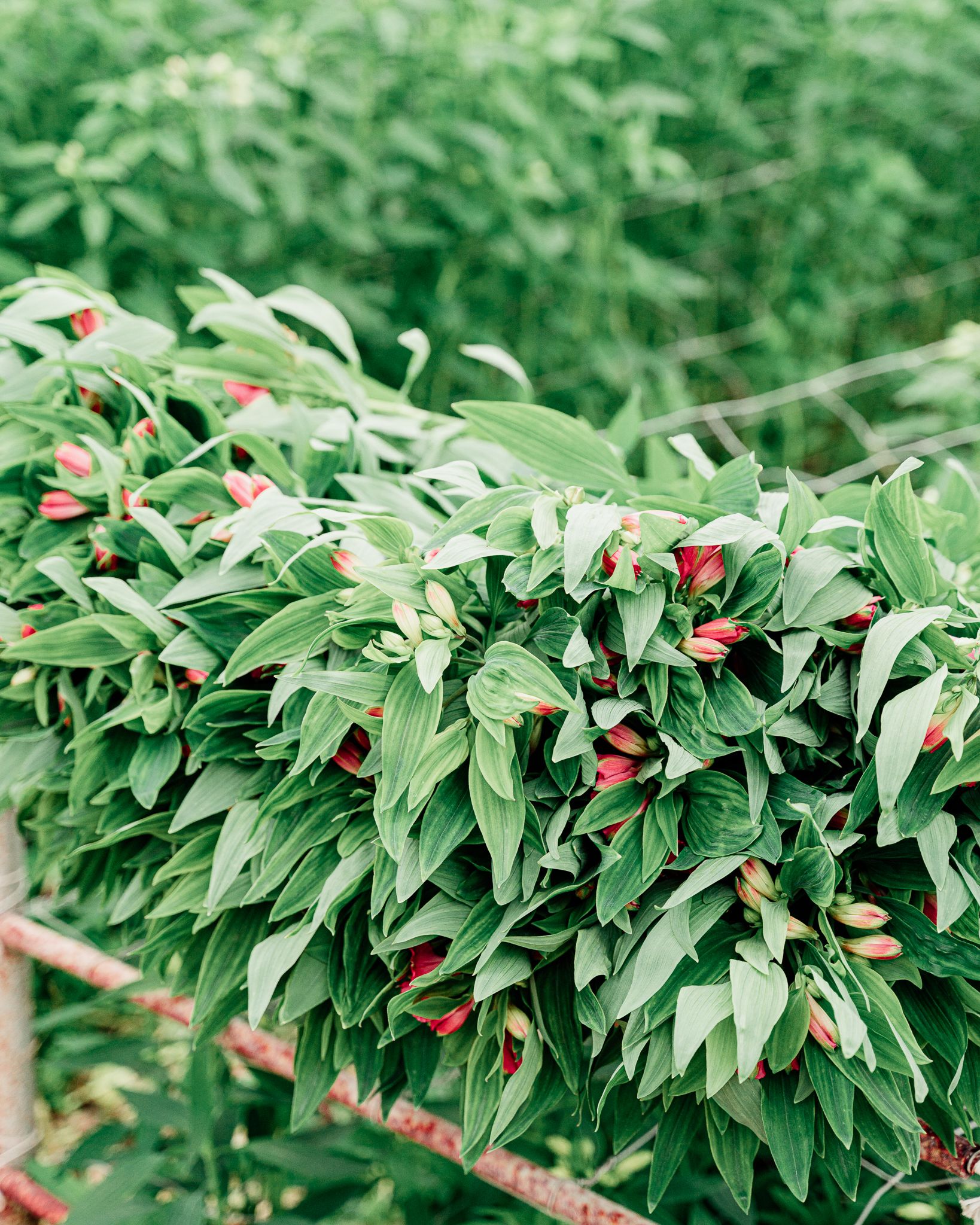
Image courtesy of Crosslands Flower Nursery; photo by James Greig
Image courtesy of Crosslands Flower Nursery; photo by James Greig
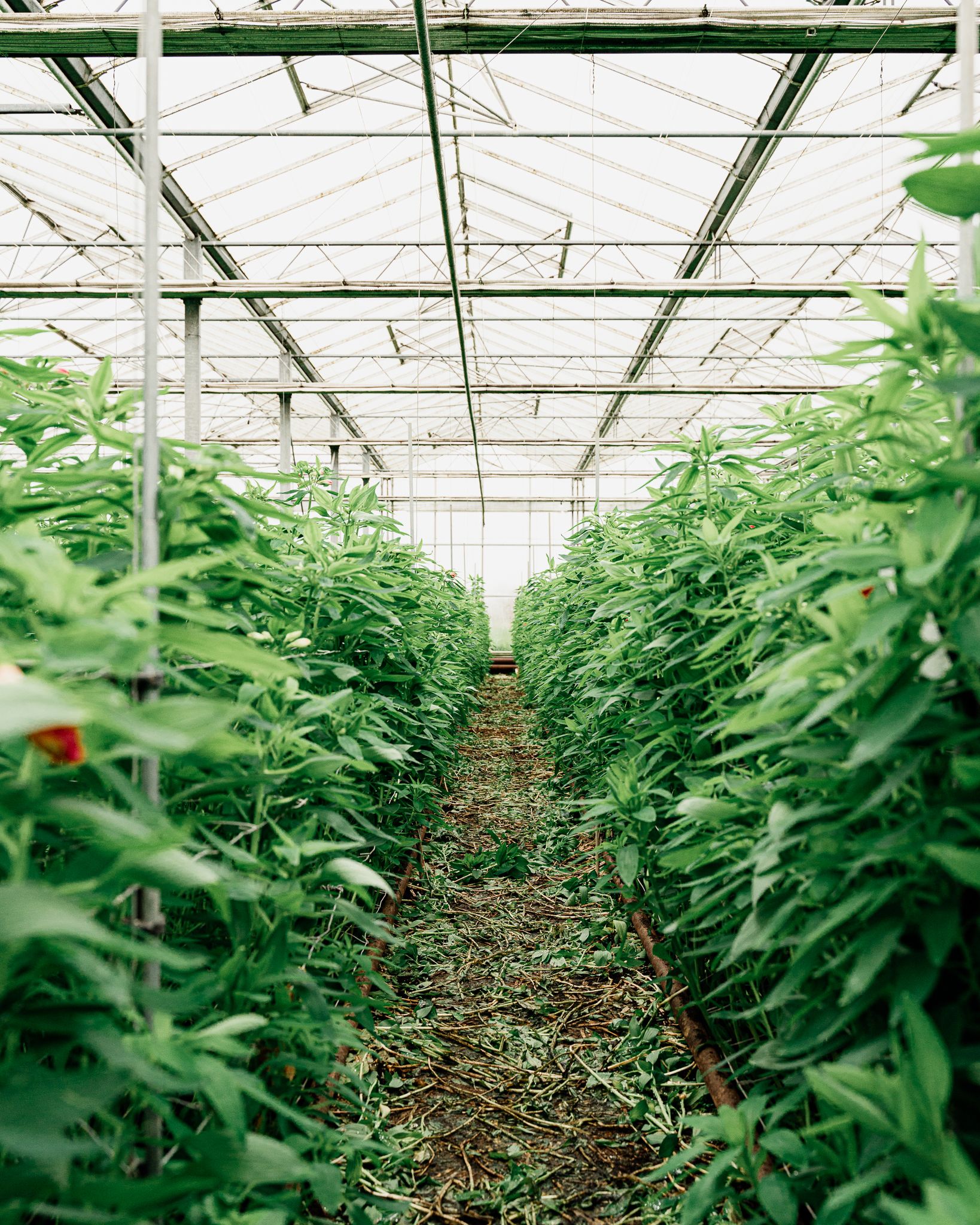
Image courtesy of Crosslands Flower Nursery; photo by James Greig
Image courtesy of Crosslands Flower Nursery; photo by James Greig
Do you believe the push for sustainable growing resonates with your customers?
I would like to think so. I tend to believe that is why people are buying our flowers.
People could get foreign products at a lower price. However, they know my flowers will have a bigger bud, a more vibrant flower head and a longer-lasting bloom. They know the product is coming directly from the greenhouse or through a florist.
If they have any questions or concerns, they can message me on Twitter or Instagram, and I can send them a video to show how the business operates. Not only can they have our flowers in their home, but they can also see how they are grown.
My accessibility is a real advantage, and you would not get that if you bought flowers from a supermarket.

How do you experience the advantages of family-ownership?
The customers understand that I have inherited knowledge and experience behind everything I do. It would be impossible to learn all I know in school.
We are very proud of our business because we are specialists in our sector, and people respect that. They do not mind paying a bit extra for quality, and they can see the difference between our flowers and a cheaper product.
We are a cut above the rest, and that quality is rooted in our family business legacy.

